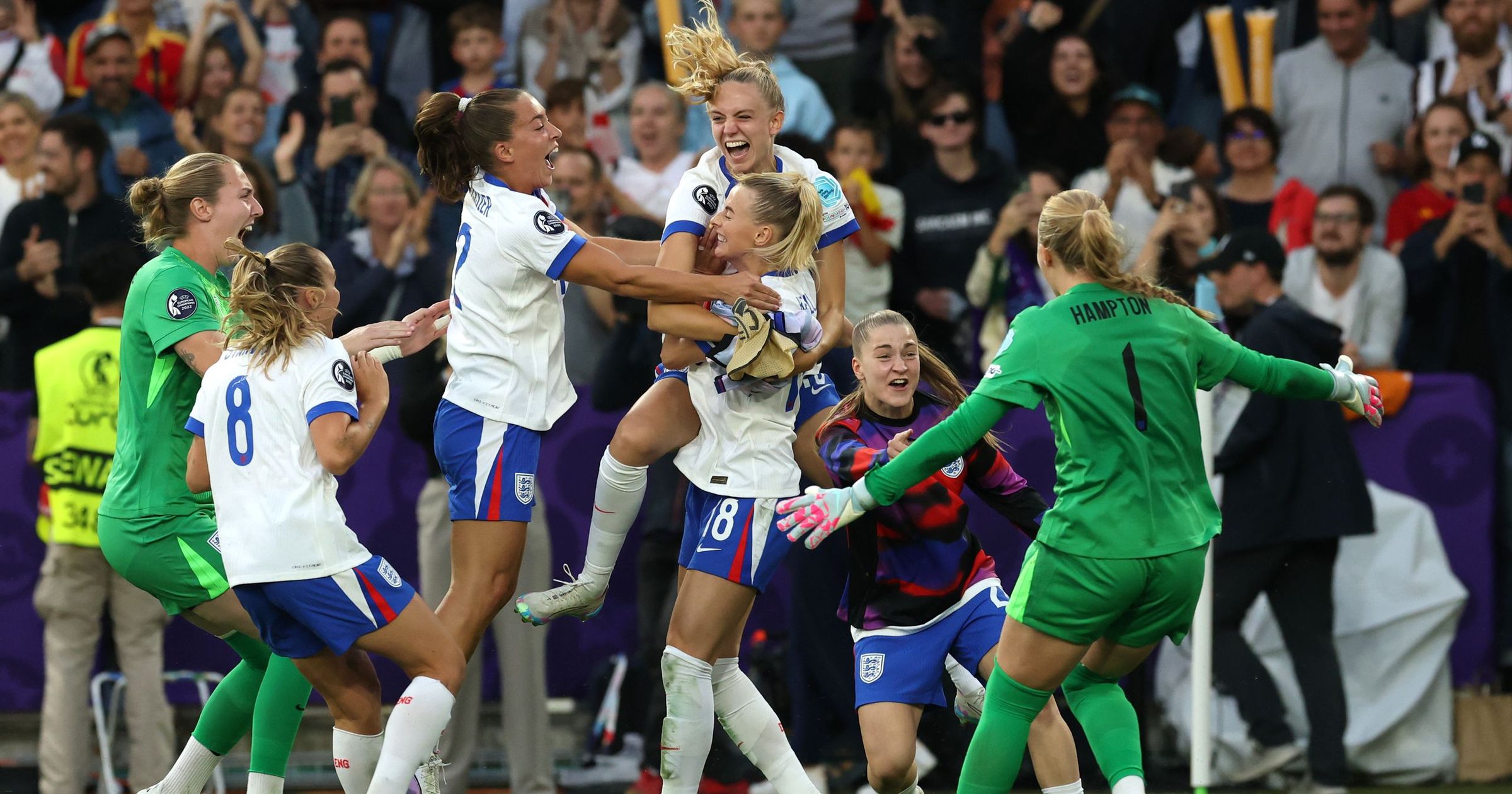The stage is meticulously set in Basel, Switzerland, for what promises to be a monumental clash in women`s football. Sunday, July 27th, marks the highly anticipated UEFA Women`s Euro 2025 final, featuring two powerhouses of the sport: England, the reigning European champions, and Spain, the current FIFA World Cup holders. This fixture is more than just a final; it`s a narrative spun from recent history, a testament to evolving strategies, and a standard-bearer for the elite level of the women`s game.
A Rematch For The Ages
Exactly 707 days after their intense encounter in the 2023 FIFA Women`s World Cup final, these two footballing titans find themselves on opposite sides of the pitch once more, with another prestigious trophy on the line. That World Cup final, a narrow 1-0 victory for Spain courtesy of Olga Carmona, left an indelible mark, establishing a compelling rivalry. Since then, their competitive spirit has only intensified, evidenced by their evenly split encounters in the 2025 UEFA Nations League. Each match has been a masterclass in tight margins, underscoring the parity and competitive fire that defines this burgeoning rivalry, suggesting that neither side truly holds a psychological edge, only a historical score to settle.
England: The Lionesses` Unyielding Roar
Under the stewardship of Sarina Wiegman, England’s Lionesses have forged a reputation for relentless spirit and unwavering resolve. Their journey to this final has been a testament to their resilience, navigating two demanding extra-time knockout matches, including a tense penalty shootout against Sweden and a hard-fought victory over Italy. Despite facing significant personnel changes, including the retirements of key figures and ongoing injuries to vital players like Lauren James, Leah Williamson, and Lucy Bronze, the squad has consistently found a way to win. It appears that for the Lionesses, victory is not merely a goal, but a state of being, achieved often with a dramatic flair that keeps spectators on the edge of their seats.
Wiegman’s tactical approach, sometimes characterized by external observers as less dynamic in terms of rotations, has nevertheless consistently yielded results. The dramatic late-game heroics, particularly from players emerging from the bench, have not just secured victories but have solidified the team`s identity as tournament lionhearts. Their pursuit of history – to be the first team to win the Euro after losing their opening match – adds another layer of intrigue to their campaign, promising that every ounce of energy will be expended in their quest for a historic repeat.
Spain: The Architects of Possession
Spain, fresh off their World Cup triumph, enters the Euro final showcasing their distinctive blend of technical brilliance and possession-based football. Their path has seen them dispatch formidable opponents, including host nation Switzerland and, notably, Germany—a historic first for the Spanish program. The core of their success lies in their unparalleled midfield mastery, orchestrated by the formidable trio of Aitana Bonmatí, Alexia Putellas, and Patri Guijarro, whose synergy dictates the tempo and flow of every match. Watching them operate is often akin to witnessing a meticulously choreographed ballet, albeit one with a very pointed goal.
However, Spain’s journey since the World Cup has not been without its complexities. The aftermath of their global victory was overshadowed by significant off-pitch turbulence within the federation and coaching staff. Yet, under the guidance of new head coach Montse Tome, the team has not only maintained its elite status but has also seen new talents emerge, such as Claudia Pina, who has transitioned from a potent bench option to a consistent starter, adding further depth to their attacking prowess. For Spain, this final offers an opportunity to further validate their position at the pinnacle of women`s football by claiming their first-ever Euro title and, perhaps, closing a chapter of internal strife with a celebratory flourish.
A Clash of Styles, A Battle of Wills
The final promises a fascinating tactical duel. England’s pragmatic efficiency and raw tenacity will meet Spain’s intricate passing sequences and fluid attacking movements. Both teams have demonstrated exceptional offensive capabilities throughout the tournament, scoring a combined 32 goals. However, their defensive profiles offer a contrast: Spain boasts three clean sheets and has conceded only three goals, while England has conceded six. The margins for error are infinitesimally small, and the game will likely be decided by moments of individual brilliance or tactical ingenuity, leaving little room for miscalculation.
The personal duels across the pitch, particularly in midfield where both teams excel, will be critical. Can England disrupt Spain`s rhythm, or will Spain`s intricate web of passes unlock England`s defensive lines? This fixture is not merely a contest of athleticism but a chess match of strategic deployment and psychological fortitude, where every pass, tackle, and shot carries immense weight.
The Stakes: History and Legacy
For England, a victory would mean becoming the first team in over a decade to repeat as Euro champions, solidifying their legacy as a dominant force in European football. For Spain, a win would mark their inaugural Euro title, placing them among an elite few nations to achieve immediate consecutive success after a World Cup triumph. Beyond the immediate glory, the outcome will undoubtedly influence the trajectory of women`s football, further elevating its profile and inspiring a new generation of players and fans, demonstrating the profound impact a single match can have on an entire sport.
As the countdown to Sunday commences, the anticipation is palpable. This final is poised to be more than just a football match; it`s a defining moment, a convergence of talent, resilience, and ambition, ready to etch its name into the annals of sporting history, ensuring that wherever the future of women`s football leads, this clash will be remembered as a pivotal point.

